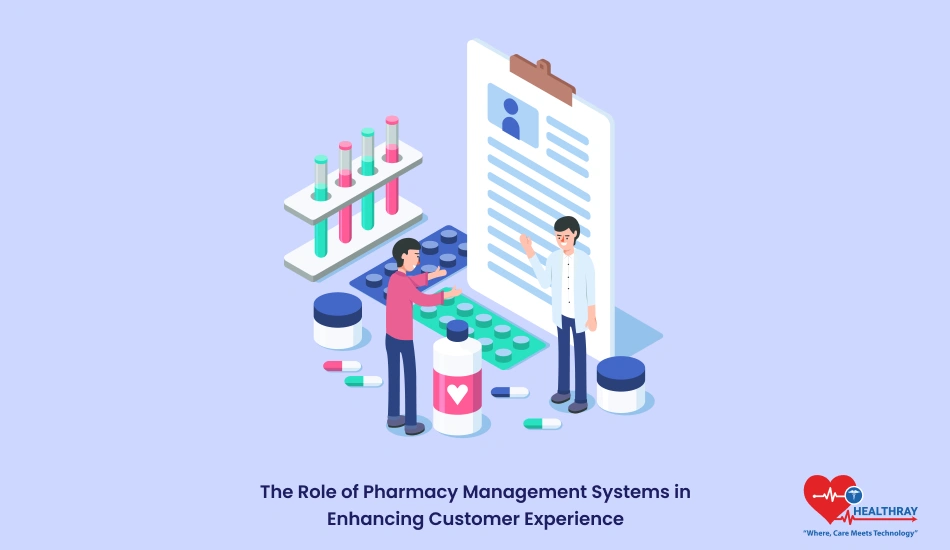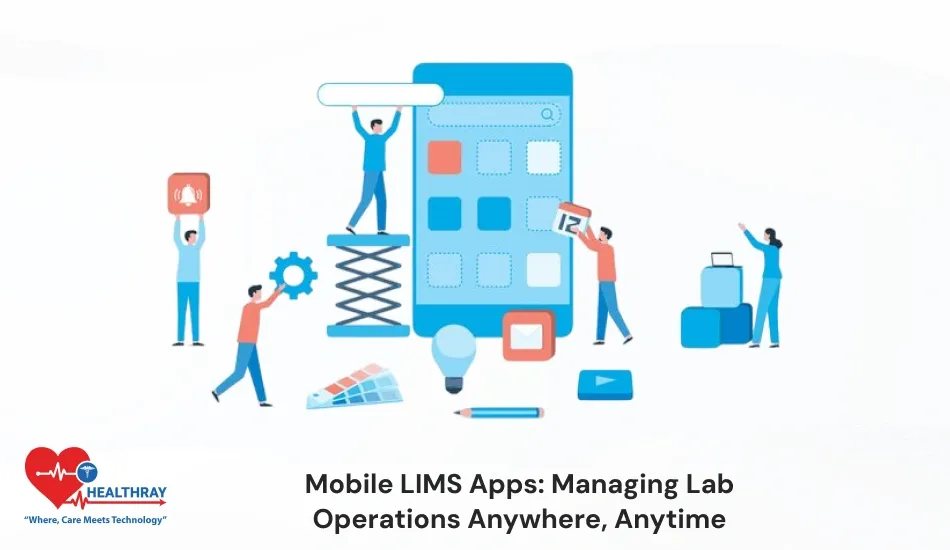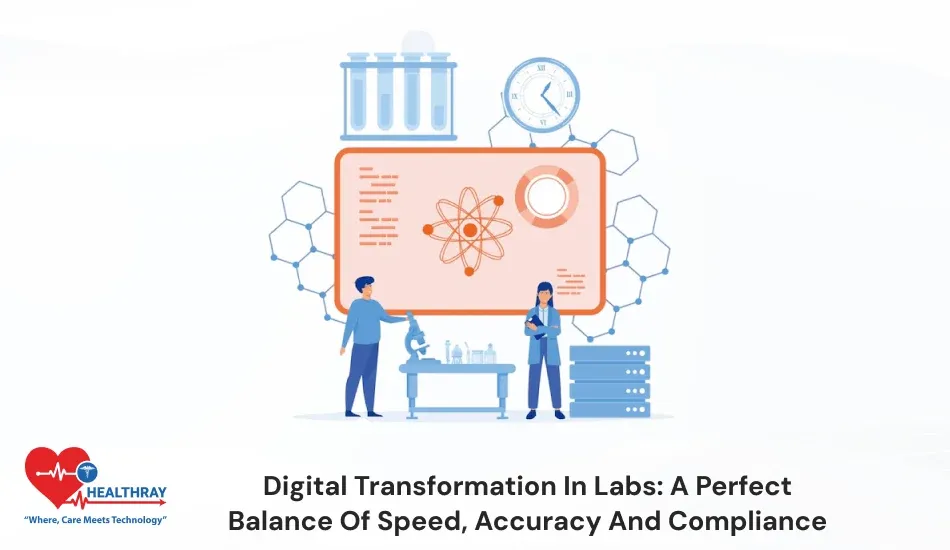Pharmacy management systems (PMS) are changing the way pharmacies operate, making customer interactions smoother and more satisfying. Whether it’s reducing wait times, improving medication safety, or personalizing services like refill reminders, these systems put the focus where it belongs—on the customer.
But it’s not just about the customer. For pharmacy owners, PMS streamlines operations and cuts down on errors. Healthcare IT professionals find them valuable for compliance and data integration, while pharmacists can finally spend less time on manual tasks and more time on patient care.
In this post, we’ll explore how the Pharmacy Management System creates a better experience for everyone involved. You’ll learn about their benefits, operational advantages, and the key features that make them indispensable for modern pharmacies.
What is a Pharmacy Management System?
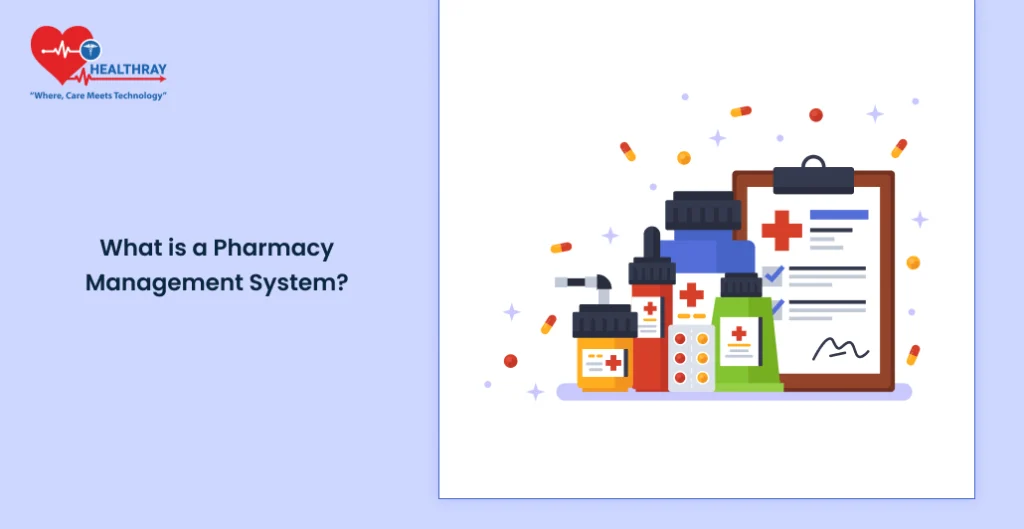
A pharmacy management system (PMS) is specialized software designed to streamline the day-to-day operations of a pharmacy. Think of it as the backbone of modern pharmacy workflows, helping manage prescriptions, inventory, customer data, and compliance needs all in one place.
For pharmacy owners, it ensures that operations run smoothly with minimal disruptions. It reduces manual errors, which means happier customers and better business outcomes. Healthcare IT professionals find PMS crucial for integrating various digital tools, ensuring that everything from e-prescriptions to billing systems works seamlessly. For pharmacists, it simplifies routine tasks, letting them focus on patient care and counseling.
Core functionalities of PMS include:
- Prescription Processing: Automated tracking, filling, and billing of prescriptions.
- Inventory Management: Monitoring stock levels and alerting for low inventory.
- Patient Data Management: Maintaining detailed patient profiles with histories and preferences.
- Regulatory Compliance: Ensuring adherence to local and national healthcare regulations.
A PMS isn’t just a tool—it’s an essential system for pharmacies looking to provide better services while staying competitive.
Benefits of Pharmacy Management System for Customer Experience
Pharmacy management software (PMS) are more than just tools for running a pharmacy—they are key to creating a superior customer experience. By automating processes and improving interactions, these systems help pharmacies build trust and loyalty among their customers.
Here’s how PMS enhances customer experience:
- Faster Service: Customers value efficiency, and PMS makes it possible to deliver that. Automating tasks like prescription processing and billing significantly reduces wait times. With everything running seamlessly, customers can pick up their medications quickly and without hassle.
- Personalized Care: PMS allows pharmacies to go beyond generic services by offering personalized touchpoints. Features like automated refill reminders, health tips, and tailored promotions help create a connection with customers. This personalized care improves customer satisfaction and builds loyalty.
- Enhanced Medication Safety: One of the biggest benefits of PMS is its ability to reduce errors. Features like drug interaction alerts and dosage checks ensure that customers receive the right medications in the correct quantities. This level of accuracy not only protects customers but also builds their confidence in the pharmacy.
- Transparency in Transactions: PMS simplifies billing and payment processes. By providing clear and accurate receipts, pharmacies can eliminate confusion, ensuring customers understand their purchases and insurance claims. This transparency enhances the overall experience.
By prioritizing customer needs with PMS, pharmacies can not only meet but exceed expectations. The result? A happier customer base and stronger business growth.
Operational Improvements for Pharmacies
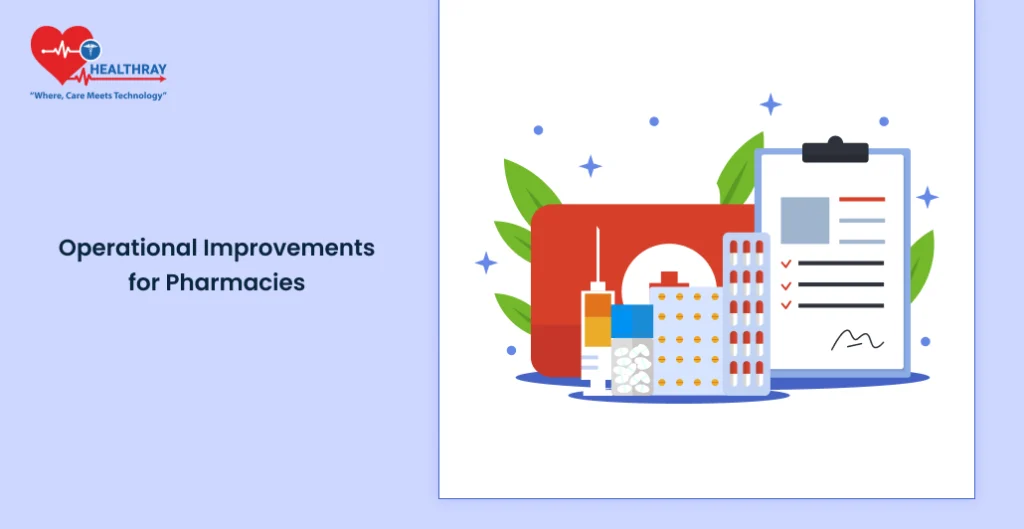
Pharmacy management systems (PMS) aren’t just about better customer experiences—they’re also game-changers for daily operations. These systems help pharmacies handle their tasks more efficiently, saving time, reducing errors, and ensuring smooth workflows.
- Time-Saving Through Automation: Manual tasks like entering prescription details, updating inventory, and processing billing can eat up valuable time. PMS automates these processes, giving pharmacists more bandwidth to focus on customers and patient care. This shift not only increases productivity but also reduces burnout among staff.
- Inventory and Stock Optimization: Keeping the right stock levels is a constant challenge for pharmacies. PMS helps by tracking inventory in real time, notifying staff when stock runs low or when expiration dates are approaching. This prevents overstocking or shortages, ensuring customers can always get their medications when they need them.
- Integration with Other Systems: PMS can connect seamlessly with other tools, like electronic health record (EHR) systems, e-prescription platforms, and billing software. This integration minimizes data entry errors and makes it easier to share information securely, streamlining coordination with doctors, insurers, and other stakeholders.
- Error Reduction: Mistakes in prescriptions or inventory can lead to serious issues. PMS minimizes these errors with automated checks and accurate record-keeping. This not only improves operational reliability but also enhances the pharmacy’s reputation.
Pharmacies that embrace PMS enjoy smoother day-to-day operations. By freeing up time and reducing inefficiencies, they’re better equipped to deliver exceptional service while maintaining profitability.
Ensuring Compliance and Data Security
In the pharmacy world, staying compliant with regulations and safeguarding customer data are non-negotiable. Pharmacy Software Solutions play a critical role in addressing these challenges, ensuring that pharmacies meet legal requirements and protect sensitive information.
- Meeting Regulatory Requirements: Pharmacies must adhere to strict regulations, including those related to prescription handling, patient confidentiality, and insurance claims. PMS ensures compliance by automating record-keeping, flagging potential issues, and generating reports required by regulatory authorities. This reduces the risk of fines or penalties.
- Protecting Patient Data: Pharmacies handle sensitive information like medical histories and prescription details. PMS incorporates robust security features, such as encryption and controlled access, to prevent unauthorized use. By prioritizing data security, pharmacies can build trust and maintain their reputation.
- Reducing Human Errors in Record-Keeping: Accurate records are essential for compliance, and PMS helps maintain them effortlessly. By automating processes, these systems minimize errors in patient records, inventory logs, and billing information, ensuring everything is accurate and up to date.
- Audit and Reporting Tools: PMS simplifies audits by providing detailed logs of transactions, prescriptions, and inventory movements. These tools make it easier to prepare for inspections and prove adherence to regulations.
By combining automation with security, PMS takes the guesswork out of compliance and data protection. Pharmacies can focus on serving customers, knowing they’re meeting all legal and ethical obligations.
Features to Look for in a PMS
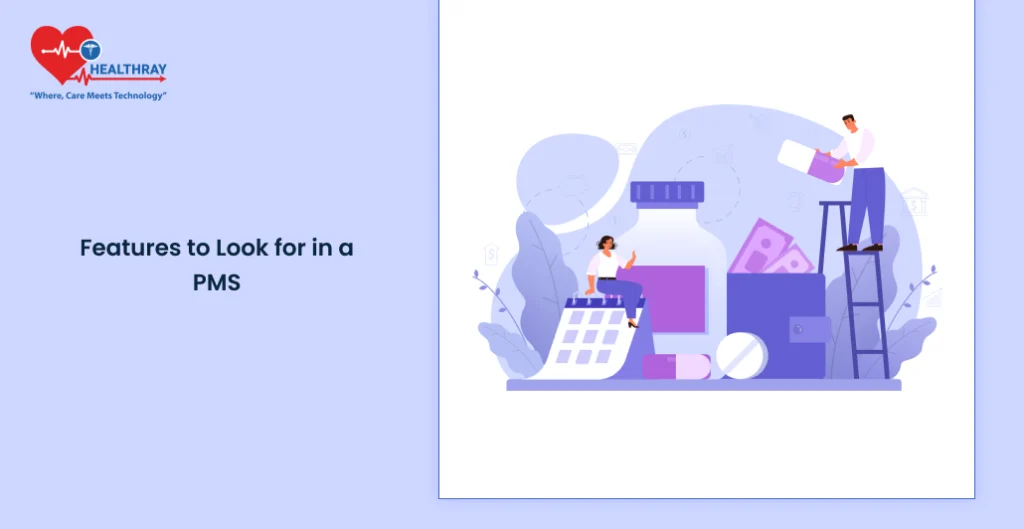
Choosing the right pharmacy management system (PMS) can be a game-changer for your business. The right system should simplify operations, enhance customer interactions, and ensure compliance. But with so many options available, how do you decide? Here are the key features to prioritize:
- User-Friendly Interface: The system should be intuitive and easy for staff to navigate. A complicated interface can lead to errors and slow down workflows. Look for PMS options with straightforward dashboards and minimal learning curves.
- Integration Capabilities: A PMS should work seamlessly with other tools, like electronic health records (EHR), e-prescription platforms, and billing software. This ensures smooth communication between systems and avoids duplicating efforts.
- Real-Time Inventory Management: Managing stock efficiently is critical. Choose a PMS that provides real-time updates, alerts for low inventory, and tracking for expiration dates. This helps ensure customers always have access to their medications.
- Compliance and Security Features: The PMS should include built-in tools for meeting regulatory requirements and protecting sensitive data. Features like encryption, role-based access, and automated record-keeping are essential for maintaining compliance.
- Customizable Reporting: Every pharmacy has unique needs. A PMS with customizable reporting options lets you generate the insights most relevant to your operations, such as sales trends, prescription volumes, or customer demographics.
- Scalability: If you’re planning to expand or grow your pharmacy, opt for a system that can scale with you. Whether it’s adding more users or integrating new features, the PMS should support long-term growth.
By focusing on these features, you’ll be equipped to choose a PMS that not only meets your needs today but continues to add value as your business evolves.
Implementing a PMS: Best Practices
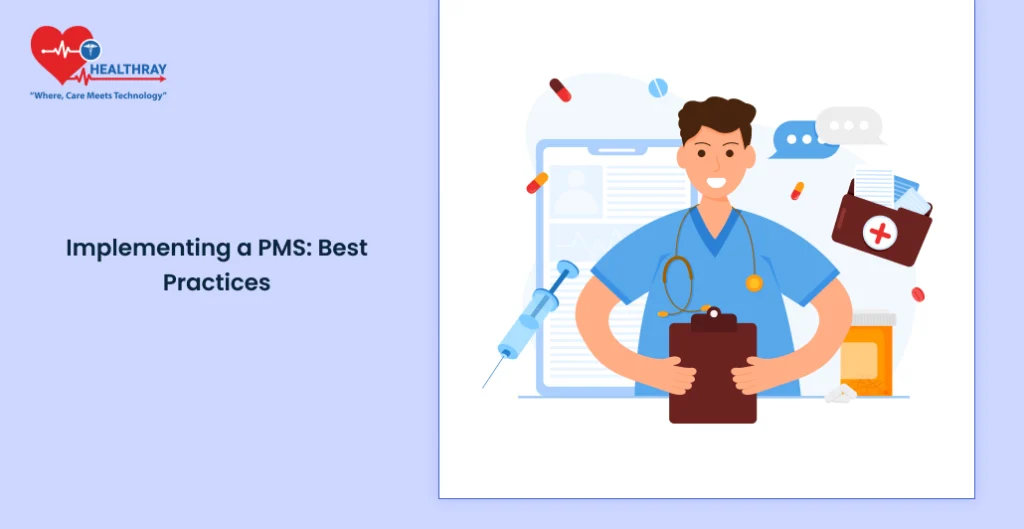
Introducing a pharmacy management system (PMS) can transform your operations, but a successful implementation requires thoughtful planning. Here are some best practices to ensure a smooth transition and maximize the benefits:
- Evaluate Your Pharmacy’s Needs: Start by identifying your specific requirements. Consider factors like prescription volume, staff size, and the need for integration with existing systems. This helps you choose a PMS tailored to your pharmacy’s unique demands.
- Involve Your Team Early: Engage your staff in the decision-making and implementation process. By understanding their workflows and pain points, you can select features that will have the greatest impact. Early involvement also helps build buy-in, making adoption smoother.
- Invest in Training: A pharmacy software is only as good as the people using it. Ensure your team receives thorough training on the new system, including its features, troubleshooting, and best practices. This minimizes errors and increases confidence in using the software.
- Plan for a Gradual Rollout: Avoid overwhelming your team by implementing the system all at once. Start with a pilot phase to test the PMS in a controlled environment. Use this phase to address any technical issues and refine processes before a full rollout.
- Prioritize Data Migration: Transitioning existing records into the new system is critical. Work with the PMS provider to ensure data is migrated securely and accurately. Verify that patient records, inventory data, and transaction histories are preserved during the move.
- Monitor and Optimize: Once the PMS is up and running, monitor its performance and gather feedback from your team. Regularly evaluate its impact on operations and look for opportunities to optimize workflows or add new features.
By following these steps, you’ll ensure a seamless implementation that minimizes disruptions and sets your pharmacy up for long-term success.
Conclusion
Pharmacy management systems have become essential tools for modern pharmacies aiming to deliver excellent customer service. These systems not only streamline daily operations but also help pharmacies build stronger relationships with their customers. By reducing wait times, ensuring medication safety, and personalizing care, PMS makes a tangible difference in the customer experience.
For pharmacy owners, healthcare IT professionals, and pharmacists, implementing a Hospital Management System is more than just adopting new technology—it’s a strategic move toward long-term growth. With features like real-time inventory tracking, compliance tools, and integration capabilities, these systems solve critical challenges while positioning pharmacies for success.
Investing in a robust PMS today means better efficiency, happier customers, and a pharmacy that stands out in a competitive market. If you’re ready to take your operations to the next level, now is the perfect time to explore how a PMS can transform your business.
